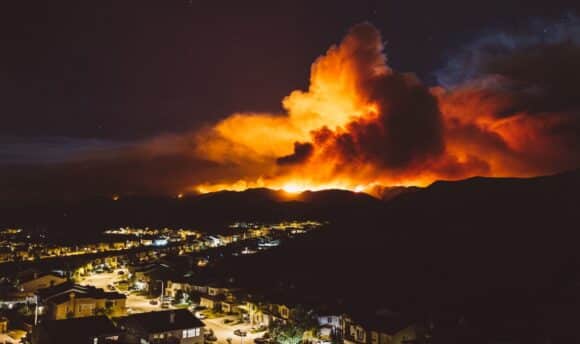A new analysis finds that far-right politicians in Texas and Louisiana, who have been attacking the insurance industry’s ability to factor in basic climate risks for their business, have quietly been receiving hundreds of thousands of dollars from the insurance industry itself. As the insurance industry faces billions in climate-related losses, this raises the question why insurers would continue to support fringe politicians that are trying to limit their freedom to consider such growing risks.
Texas lawmakers – who passed a bill in June to stop insurers from considering certain risks in setting rates – have collectively raked in $163,421 in campaign contributions from the insurance industry. This includes: $15,000 from Travelers, $7,250 from Allstate, $7,000 from Chubb, and $3,500 from Liberty Mutual. Even this spending appeared to fail to protect insurers from being targeted at the behest of fossil fuel interests. It’s notable to compare, for example, the $886,968 and $672,415 the same backers of the bill received from the oil and gas industry and utility companies respectively.
The insurance industry did successfully push back against some of the most aggressive original language in the bill, and secured a number of carve outs to be able to continue to use “sound actuarial principles.” Despite securing those amendments, the industry body APCIA noted its opposition to the bill’s passage due to the attacks on insurers’ core business model and free market practices.
Such opposition appears to not be stopping the sponsor of the Texas bill Rep. Oliverson ($42,000 received from insurers) to float it as model legislation before the National Council on Insurance Legislators (NCOIL), an organization for which he also serves as Vice President. He also noted to the right-wing anti-climate group Texas Public Policy Foundation that he has been in touch with other state politicians such as in Oklahoma and North Dakota who have said “whatever you do, we’re going to do.” Before other states’ politicians consider following Texas’s footsteps, they might want to take a hard look at the opposition they can expect to face from the insurance industry, and the contribution dollars that may be on the line.

Rep. Tom Oliverson (Image Credit: Twitter)
Louisiana and Texas Attorneys General who Weaponized Political Office to Target Insurers’ Climate Actions Bankrolled by the Insurance Industry too
Back in May, 23 Attorneys General sent a letter to the Net Zero Insurance Alliance (NZIA) accusing the voluntary and non-binding alliance of engaging in an illegal antitrust racket. This political intimidation spooked insurance companies, many of whom left the NZIA alliance shortly thereafter. Some made a show of announcing new policies to restrict fossil fuels – indicating that nothing changed about their basic business calculations. For example: the French reinsurer SCOR adopted a policy to stop insuring new oil and gas fields on the same day that it announced its departure from the NZIA.
The letter was co-led by the Attorneys General of Utah and Louisiana. Here, again, we find the insurance industry has fueled the political career of Louisiana AG Jeff Landry via campaign contributions. Landry also happens to be a 2023 gubernatorial candidate.

Louisiana Attorney General Jeff Landry (Image Credit: Wikimedia Commons)
Landry, throughout his state-level political career, has received $112,200 from the insurance industry. He has also received $875,132 from the oil and gas industry and $21,750 from fossil fuel utilities throughout his state-level political career, as well as another $270,666 from the same industries in running for Congress.
Despite this largess, Landry was not the top recipient of either oil and gas industry money or insurance sector money. That award goes to where this blog post began: Texas. There, Attorney General Ken Paxton (currently facing a looming impeachment trial) has received over $3.9 million from the oil and gas industry throughout his career (over 65% of the total given to the 23 AGs) and another $183,500 from the insurance industry (just under 32%), including over $166,000 from Farmers Insurance.

Texas Attorney General Ken Paxton (Image Credit: Texas Office of the Attorney General)
As the adage goes: everything is bigger in Texas. In this case, that’s definitely not a good thing.
Press representatives from Liberty Mutual, Allstate, Chubb, Travelers, and APCIA did not respond to requests for comment for this article.



